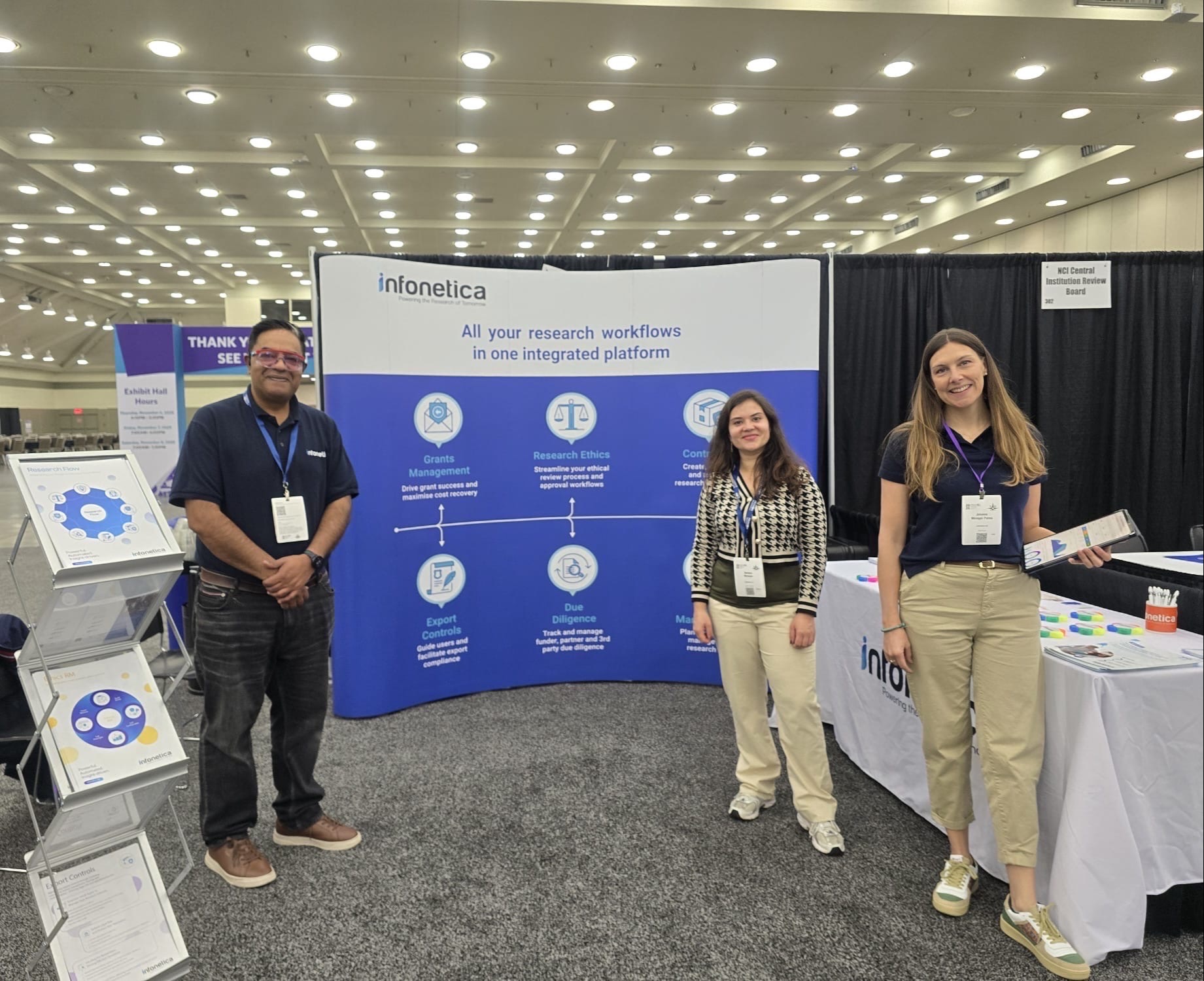Moving from Process to Culture
Universities are under pressure to ensure research is ethical, compliant, and high quality. All while handling increasing volumes, complex review processes, and the need to reduce administrative burden.
Infonetica invited Dr Filipa Vance, Head of Research Governance and Compliance at the University of Bath to share insights on how Ethics@Bath, a digital ethics review platform powered by Ethics RM, became a catalyst for both operational efficiency and cultural change.
Watch the recording to hear how Bath used data and digital tools to streamline review workflows, enhance oversight and embed a stronger culture of integrity.
Tackling Governance Complexity with Smarter Processes
Bath faced the familiar challenges of managing high submission volumes, multiple committees, and a wide range of project types including undergraduate research and complex collaborations. Limited visibility across committees and inconsistent reviewer practices made it harder to monitor specialist risks such as the Nagoya Protocol, Export Controls, and AI-related research.
By implementing Ethics RM, Bath introduced digital workflows that improved visibility, reduced manual work, and created a single source of truth for ethics review.
“We wanted to make governance something that enabled research, not slowed it down.” – Dr Filipa Vance
Using Data to Understand and Influence Behaviour
Bath used Ethics RM to analyse reviewer comments and workflow data to identify patterns such as repeated ‘revise and resubmit’ cases, differences in reviewer risk appetite, and recurring training needs.
This insight allowed Filipa’s team to intervene early – offering targeted reviewer development sessions and clearer guidance for applicants. Over time, governance data became a tool not just for operational efficiency, but for shaping culture.
Streamlining Committees and Embedding Integrity
Bath also used these insights to refine how committees operated. The team consolidated committees where possible, clarified thresholds for review, and aligned policies across departments.
The result was faster turnaround times, greater reviewer confidence, and a measurable improvement in the quality of applications submitted for review. Governance was no longer seen as an administrative barrier but as an essential part of research excellence.
“The conversations we’re having now are much more about the quality of the research and what integrity looks like in practice, rather than just ticking the compliance box.” – Dr Filipa Vance
Lessons for Other Institutions
Bath’s experience highlights several practical lessons for research managers and governance teams:
- Start with process improvement, and keep culture as a goal.
- Empower administrators with visibility and feedback loops.
- Use visibility to inform policy decisions and identify reviewer training needs.
- Embed integrity into workflows rather than treating it as an add-on.
Bath’s journey shows that modern research governance can be both efficient and values-driven – and that digital tools like Ethics RM can help institutions achieve both.
Highlights from the Q&A
Q: How did you approach culture change across the University?
Filipa explained that genuine culture change required both senior leadership buy-in and grassroots support. At Bath, the shift began with clear sponsorship from the Pro Vice-Chancellor for Research and the creation of a strong professional services team that worked hand in hand with academic champions.
She noted that frustrations with old, inefficient processes helped build momentum for change, and that open, honest conversations were essential to hold people accountable and bring them on the journey.
Q: How do you monitor compliance and handle cases where ethical approval isn’t obtained at the right time?
Filipa emphasised the importance of maintaining a culture of trust rather than fear. At Bath, researchers are encouraged to come forward if something has been missed, with retrospective reviews available to address issues transparently. The university triangulates data from systems to identify potential non-compliance and escalates cases through the Associate Pro Vice-Chancellor and Pro Vice-Chancellor for Research, where needed.
This approach has helped embed shared responsibility for compliance across the institution.
Watch the Full Session on Demand
Hear Dr Filipa Vance share Bath’s story:

.png)



.png)










.jpg)

.png)






